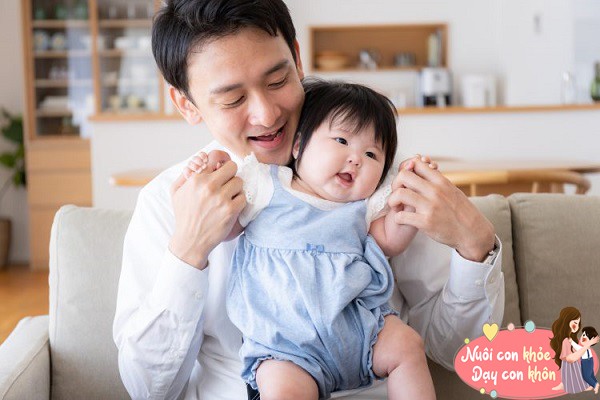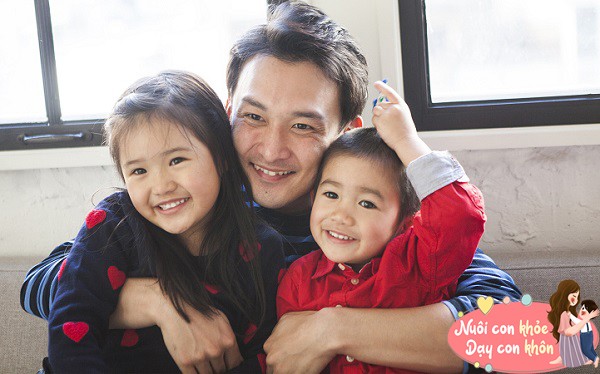So why do fathers tend to be closer to their daughters, and vice versa? In fact, the aforementioned study confirmed this. Both fathers and mothers have different perspectives when it comes to their sons and daughters.

Why do fathers tend to dote on their daughters? Interesting findings from brain scans
The American Psychological Journal “Behavioral Neuroscience” published the results of a recent study. They recruited 30 father-daughter pairs and 22 father-son pairs for an experiment.
Researchers placed recorders in the children’s rooms and monitored them for 48 hours, capturing 50-second recordings every nine minutes. The goal was to collect the most comfortable moments between fathers and daughters.
Results showed that fathers’ care and interaction with their daughters were higher compared to their sons. The frequency of whistling and singing for daughters was five times more than for sons.
When daughters made various requests, fathers were also more likely to oblige. Fathers tended to use more body language when interacting with their daughters.

Fathers have an infinite amount of love for their children.
Additionally, researchers asked the fathers to undergo MRI scans to observe their different reactions to their children.
They found that when daughters expressed happiness, the fathers’ brains responsible for “reward” and “emotion management” showed greater responses in these areas. However, when fathers saw their sons’ happy faces, the response in these areas was moderate.
On the other hand, when fathers saw their sons’ expressionless faces, their brains showed a greater reaction, as most fathers couldn’t understand what their sons were thinking and wanted to know their inner thoughts. This reaction can be interpreted as curiosity and inquiry, which is distinct from daughters.
Hence, it can be concluded that fathers doting on their daughters more is a global phenomenon. For instance, a father in Iran decided to quit his job to become a full-time bodyguard for his daughter, demonstrating the utmost expression of a father’s love.

Fathers doting on their daughters is a global phenomenon.

Why do mothers tend to favor their sons? The results are also intriguing
You may have heard sayings like “Fathers love their daughters, mothers love their sons” or “Daughters take after their fathers, sons take after their mothers.” These seemingly complementary ways of loving are not random but strike a balance between yin and yang.
This notion seems accurate according to current theories, considering the physical distinction between men and women.

Mothers also have boundless love for their children.
However, at the soul level, men have an image of women in their minds, and women have an image of men in their thoughts. If someone of the opposite sex resembles them closely, it unconsciously fulfills this inner image.
Thus, when a son is born, a mother feels satisfied, as if he is another version of herself. Analyzing from this perspective, mothers tend to favor their sons.
Jungian psychologist once proposed two concepts: Armani and Animus. Armani is the image of a woman in a man’s mind, and Animus is the image of a man in a woman’s mind.
These complementary needs in the world will be reflected in the next generation. This also explains why parents prefer children who resemble them. To a certain extent, this self-centeredness is a psychological reflection.
Although these notions are innate, humans, with their consciousness and higher control, can overcome them and learn to treat their children more fairly.

Modern parents have learned to change and treat their children fairly and justly.
This demonstrates the progress and maturity of parents, leaving no emotional biases for their children’s development and instead, caring for and supporting them equally in all aspects.
Therefore, in the process of evolution and development, modern parents have learned to adapt, employing suitable educational methods and treating their children fairly and justly.



































